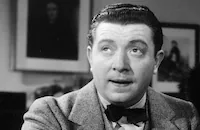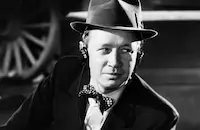Four Daughters

Brief Synopsis
Cast & Crew
Michael Curtiz
Claude Rains
Jeffrey Lynn
John Garfield
Frank Mchugh
May Robson
Film Details
Technical Specs

Synopsis
Music professor Adam Lemp has four daughters, Thea, Emma, Kay and Ann. Thea feels that love is an overrated reason for marriage and plans to marry Ben Crowley for money. Emma is loved by shy, awkward Ernest, whom the family assumes she will marry. Kay, the only one of the four to have real musical amibition, is a singer. The youngest, at eighteen, is irrepressible Ann, who pledges with Emma that neither will marry, but will live together forever. This changes with the arrival of handsome Felix Deitz, a composer who has come to town to compete for a music prize. Adam invites Felix to live at the house, and all the girls immediately develop crushes on him. Mickey Bordon, a piano player, arrives to assist Felix in writing his compositions. Mickey has a glum attitude that offends most people. Only Ann and the girl's aunt Etta see through his moroseness to the lonely person underneath and befriend him.
During a family excursion to the country, Felix proposes to Ann. When they announce their engagement, Mickey, who also loves Ann, is shattered and the other sisters are taken aback. Kay declares that she is leaving for Philadelphia to study singing. Thea, in turn, tells the family that she and Ben will also marry soon. Emma is the most upset, but she hides her feelings from Ann. Shortly before her wedding, Ann encounters Mickey, who confesses his love and informs her that Emma is in love with Felix. Ann is shocked. Then, thinking she can make both Mickey and Emma happy, she elopes with Mickey, leaving Felix for her beloved sister. Emma and Felix do not marry, and shortly afterward, he leaves for Seattle.
In New York, where they settle, Mickey and Ann face constant disappointments. Hoping to lift Mickey's spirits, the couple returns to the Lemps' at Christmas time. Everyone is home except Kay, who is singing that evening on the radio. Even Felix is visiting for the holidays. Emma tells Ann that she is engaged to Ernest, having fallen in love with him when he took care of the family after the elopement. Mickey notices that Ann and Felix are still in love, although they do their best to hide it. He offers to drive Felix to the train station and agrees to drop Ben along the way. On the way home, Mickey drives the car into a tree. When news of the accident reaches the Lemp home, Thea believes that Ben is the one who was injured and realizes that she loves him. The whole family races to the hospital, where they learn that Mickey is dying. He and Ann say their goodbyes. In the spring, Felix returns to the Lemps' to renew his proposal to Ann.

Director

Michael Curtiz
Cast

Claude Rains

Jeffrey Lynn

John Garfield

Frank Mchugh

May Robson

Gale Page

Dick Foran
Vera Lewis
Tom Dugan

Eddie Acuff
Donald Kerr

Priscilla Lane

Lola Lane

Rosemary Lane
Joe Cunningham

Wilfred Lucas
Jerry Mandy
Crew
Al Alleborn
Henry Blanke
Lenore Coffee
Ralph Dawson
Julius Epstein
Leo F. Forbstein
Benjamin Glazer
Ernest Haller
John Hughes
Stanley Jones
Lawrence Kimble
Orry-kelly
Irving Rapper
Franz Schubert
Sherry Shourds
Max Steiner
Jack L. Warner
Thyra Samter Winslow

Videos
Movie Clip



Trailer
Film Details
Technical Specs

Award Nominations
Best Director
Best Picture
Best Sound
Best Supporting Actor
Best Writing, Screenplay
Articles
Four Daughters
The film was based on Sister Act, a novel by Fannie Hurst, about four musical sisters and their widowed father. A script had been written by Lenore Coffee, and promptly forgotten. Then, in 1937, Rosemary and Priscilla Mullican, the younger sisters of a minor actress named Lola Lane, came to Warner Brothers' attention. Taking Lola's stage surname, Rosemary and Priscilla Lane had some success in a couple of Warners programmers. The studio liked the sister act, and had writer Julius Epstein revise Coffee's script for the trio, plus a young actress named Gale Page. To give the film importance, Errol Flynn was assigned to play the musician adored by all the girls, and Michael Curtiz, who had just directed Flynn in The Adventures of Robin Hood (1938), was assigned to direct. But when the role was not beefed up to Flynn's satisfaction, he dropped out. Jeffrey Lynn replaced him, and without a major star, the "A" project dropped to "B" status, to Curtiz's dismay.
Meanwhile, an actor from the socially conscious Group Theater in New York, recently signed by Warner Brothers, was waiting for his first film assignment. John Garfield got a look at the script for Four Daughters, and liked the secondary part of a cynical pianist who falls for Priscilla Lane's character. Michael Curtiz would later claim credit for getting Warners to sign Garfield, and choosing him for the part of Mickey Borden in Four Daughters. Other sources say Garfield was already under contract, and pestered Curtiz and the producers for the part, even though they wanted Eddie Albert. However it happened, Garfield was cast as Mickey, and played him brilliantly.
Four Daughters was a surprise hit, due largely to Garfield's portrayal of a brand-new screen type - the Rebel Hero. Garfield became an overnight star, and earned an Academy Award nomination as Best Supporting Actor. The film was also nominated for best picture, director, screenplay, and sound recording. The success of Four Daughters would not only inspire three sequels (two of them directed by Curtiz), but an immediate follow-up, Daughters Courageous (1939), featuring the same cast and a similar story, but with a different setting and different names for the characters.
Director: Michael Curtiz
Producer: Hal B. Wallis
Screenplay: Julius J. Epstein, Lenore Coffee, based on the novel Sister Act, by Fannie Hurst
Editor: Ralph Dawson
Cinematography: Ernest Haller
Art Direction: John Hughes
Music: Max Steiner
Principal Cast: Claude Rains (Adam Lemp), May Robson (Aunt Etta), Priscilla Lane (Ann Lemp), Lola Lane (Thea Lemp), Rosemary Lane (Kay Lemp) Gale Page (Emma Lemp), Jeffrey Lynn (Felix Deitz), John Garfield (Mickey Borden).
BW-91m. Closed captioning.
by Margarita Landazuri

Four Daughters
Quotes
Trivia
Notes
The onscreen credits list Priscilla Lane as "Pricilla Lane." The film's pre-release titles were Because of a Man and Sister Act. According to Motion Picture Herald, Errol Flynn was originally assigned to Jeffrey Lynn's part, but was replaced when he became ill. This was John Garfield's first major film role, following a "bit" in Footlight Parade, and in it he established the screen personality he came to exploit in many other films. The film received Academy Award nominations for Best Picture, Best Screenplay and Best Direction. Garfield was also nominated for Best Supporting Actor. New York Times named it one of the year's ten best films, and the National Board of Review named Garfield as one of the year's best actors. Modern sources add the following information about the production and credits: Michael Curtiz wanted Burgess Meredith to play Mickey, but he was working in Europe and was unavailable. Garfield modeled his performance on pianist Oscar Levant. Harry Warren, Al Dubin, Allie Wrubel, Elliot Grennard, Hugo Friedhofer, Heinz Roemheld and Bernard Kaun are credited with musical contributions. Max Rabinowitz composed "Mickey's Theme," and also played the piano off-screen during Garfield's performance. Ray Heindorf handled the orchestration. The film was so popular that two sequels were made, Four Wives in 1939, also directed by Curtiz (see below) and Four Mothers in 1941. Many of the cast of the film starred in another Warner Bros. film, Daughters Courageous, released in 1939, which had an almost identical plot. Fannie Hurst's story was remade by Warner Bros. in 1954 as Young at Heart, a musical starring Doris Day, Dorothy Malone, Elizabeth Fraser and Frank Sinatra and directed by Gordon Douglas. In that film, the character played by Sinatra does not die.

Miscellaneous Notes
Released in United States 1938
Released in United States 1938














